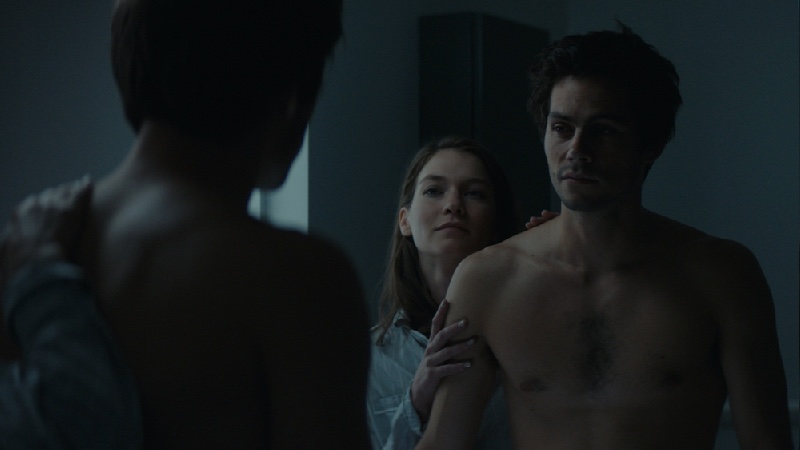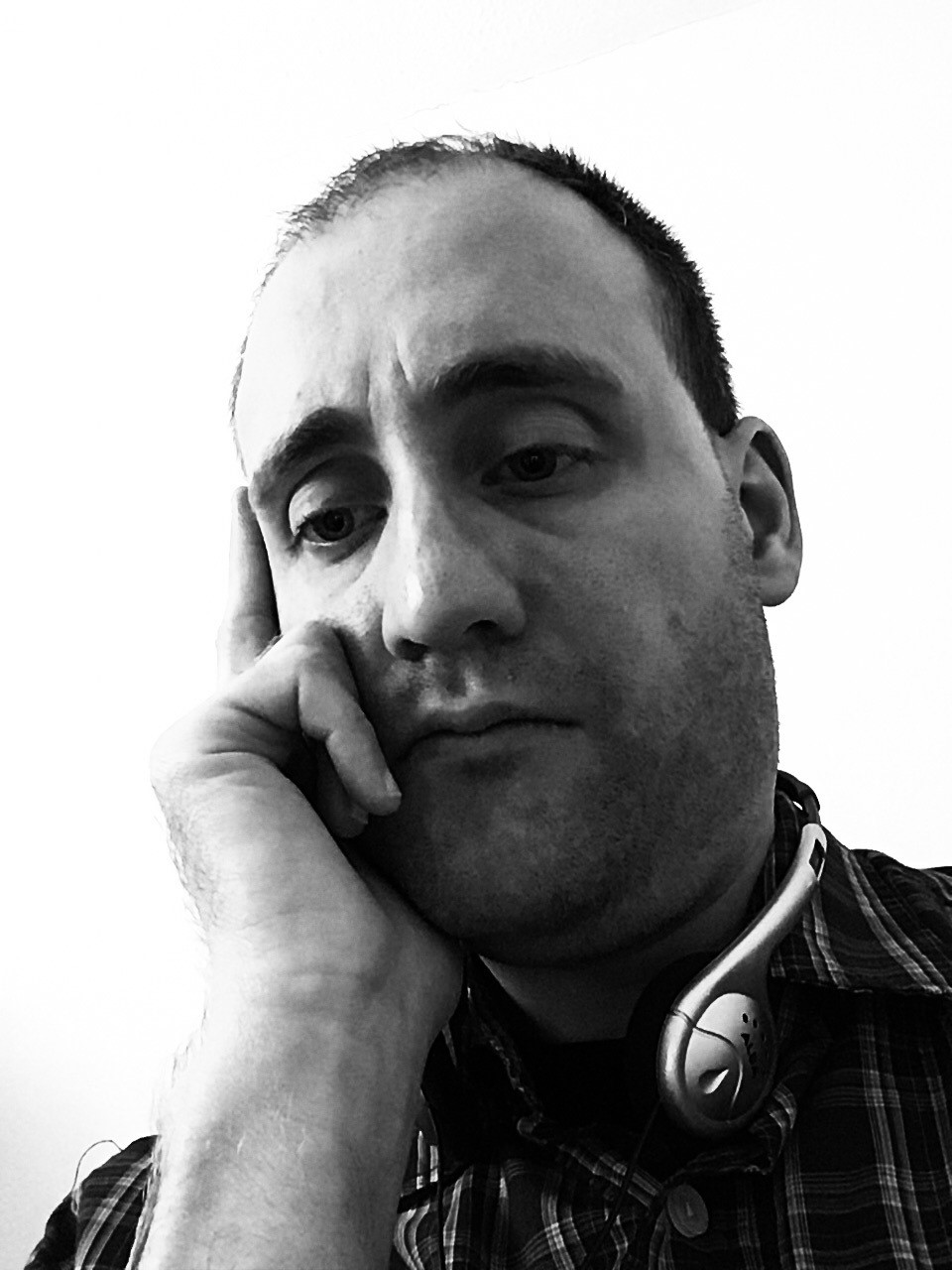




Almost nine years on from his feature debut, the faux documentary, The Conspiracy (2012), director Christopher MacBride returns with the Canadian psychological and sci-fi thriller Flashback. Fred Fitzell (Dylan O’Brien) stands on the precipice of adulthood. In a committed relationship with his long-term girlfriend Karen (Hannah Gross), he faces the pressure of a new corporate job, and his mother’s ailing health. When a chance encounter with a man from his youth results in terrifying flashbacks, Fred tries to piece together the fragmented memories of taking an experimental drug called Mercury. Becoming obsessed with finding out what happened to Cindy (Maika Monroe), a girl from his High School who went missing, the struggle to hold his life together threatens both his relationship and his job.
In conversation with DMovies, MacBride discussed exploring an alternative reality without “labels”, and whether “free will” is a false perception.
….
Paul Risker – To begin, catch us up with what has happened in the last nine years since your debut feature, The Conspiracy?
Christopher MacBride – After I made The Conspiracy, I started getting attention from people in Hollywood, and then began working in the studio system, writing scripts. I was lucky because they were my ideas. They were a little stranger and different, not your typical studio things, and I also adapted some graphic novels.
It’s fun and it’s exciting, and you think back to yourself as a kid and how you’ve always dreamed of this. You’re making a good living, but there’s as we all know the development hell, where you’re endlessly doing drafts of your scripts. These are first world problems, but you’re not making another movie.
… I dusted off this script a few years ago. It was one of the first scripts I ever wrote. I always loved it, but I thought it would be my fifth or sixth film, and I’d make it down the road. I was so sick of being in development hell in Hollywood, that I couldn’t take it anymore. I thought, ‘I love this, I want to make it before I die.’ I just needed to get behind a camera again, and so I started pursuing making this film. I was surprised people liked and responded to it because it’s so different. The next thing I knew, we were making Flashback.
It was a strange winding road to get from the first to the second movie. I’m hoping the second to the third is far less of a maze for me to navigate my way through.
PR – The motivational drive of The Conspiracy and Flashback is the search for a missing person, but this time you shift your focus from the external to the internal.
CM: I always hoped to never repeat myself, and to try and make each film and each story different. I know whether I try to do that or not, there’s always something internal that you’re repeating. All filmmakers are like that to a degree. If we pick randomly, in every [Martin] Scorsese movie, he’s telling the same story over and over again, but in different settings, countries and eras. At it’s core it’s the same story, and most filmmakers are like that.
There’s definitely a similarity between The Conspiracy and Flashback, in that they’re both about free will. You’re right that Flashback is more internal. It’s about Fred’s internal free will and he’s searching for this missing person, but he’s also trying to figure out who he is, and why he’s doing what he’s doing.
The Conspiracy is about society’s free will as a whole. Does society have a free will? Are we in control of our democracy? As a society are we controlled by shadowy forces, whereas with Flashback it’s more about Fred. Is he in control of his destiny, or is he being controlled by forces that he doesn’t understand? At their heart, they’re both about the same thematic explorations.
PR – Sitting on a rooftop overlooking the city at night, Cindy tells Fred, “I don’t want to be like them. Locked in a prison that they’ve forgot that they’re in.” Her speech begins as a clichéd and existential thought, that breaks free of cliché to build the films thematic ideas.
CM – What she’s referencing is when some people do psychedelic drugs, the labels can get pulled off of things. Everything that surrounds us in this existence is miraculous, and as she says in the script, “they’re infinite and indescribable.” Just the fact that we are sentient beings, processing our own existence in a three dimensional space, is an incredibly strange way to exist. None of us think about it that way because we’re so used to it, and everything has a label.
I have a name, I have a job, I have clothes and this in front of me is labelled a computer. We give names to things and that makes them feel ordinary. When you sometimes take a psychedelic drug, you see things for the essence of what they are, and it’s not just with people, it’s everything.
It gives you this weird birds eye view, and it doesn’t have to be drugs that do that, it can be meditation, or a moment of enlightenment.
When you’re seventeen-years-old and on a psychedelic drug like the characters are in the movie, if you were to eavesdrop on them you could roll your eyes at these clichéd discoveries they’re making. But when you’re in the moment, when you’re in their bubble, it’s incredible and I always think there’s truth to these observations.
PR – This idea elevates the discussion about “normality”, to the hypothetical of, what if we could expand the possibilities of the human experience? You however retreat from any grand declaration against reality, or a rejection of it. Fred’s fate is about the need to create a safe space in the world Cindy describes as a “prison.”

CM – What happens is when you sober up, all the labels come back. We then surrender, returning to the meat grinder of normalcy. We stop seeing the wonder in things and the metaphor I use is going under water. When you take a psychedelic drug, or have a moment of enlightenment, when the labels come off it’s like holding your breath and going under water, and looking around for a while. You can only hold your breath for so long, then you have to go back up to the normal world to be with everyone else.
Cindy can hold her breath a lot longer than Fred can. She can go under and live there. She can go and explore and never go back to a normal world with labels, and do what’s expected of her. Fred has to rejoin the normal world, in a way that his mother always wanted him to live, and eventually he creates his own bubble.
The mother is a metaphor for what has come before us – society has created a shared agreement of how we will perceive the world. Once you’re born, you’re forced into perceiving it in the same way others have before us, beginning with your parents. If you could truly take the labels off, whether it’s with a drug or something else, there’s a whole other way to perceive what’s happening to us. Fred has the courage to follow Cindy into that for a while, but eventually he succumbs to the way we all look at the world.
PR – The audience expectations build a commercial pressure for a genre film. Does this weigh down your creative expression, and does the transactional nature of cinema restrict its evolution?
CM – Film is such a strange medium and partly because of the transactional nature of it. If you could make films as cheaply as you could paint a painting or write novels, it would have likely advanced further, and there would be more exploration.
There’s an external pressure to make it more commercial, to have a three act structure, and a protagonist you can like. There are all these rules that the gatekeepers, the people that have money, feel uncomfortable without. So there’s that external pressure, but there’s also an internal pressure you put on yourself as a writer – if I don’t have some kind of traditional climax then it’s not going to feel like the movie has ended, because that’s not what people are used to.
Again, there’s already a label of how you’re supposed to do these things, and there’s a name for it. One of the things with this film that I know influenced how people reacted to it, both the script and the final product, is that it doesn’t necessarily fit cleanly into a genre. It’s partially a drama, partially a horror, partially a thriller, partially a drug movie, but it’s not cleanly any one of those things. It’s an unnerving feeling because what label do we put on it? I have to call it something so I can communicate about it, and if I can’t call it a name, then I can’t talk with people about it. Didn’t Elon Musk [CEO of Tesla Motors] name his kid some symbol? Do we need that for film?
PR – The Conspiracy and Flashback are about free will. If we consider that in the context of filmmaking, do you have the free will to push past the boundaries of the cinematic medium?
CM – I hope to have the bravery and frankly the skill as a filmmaker to one day do what you’re talking about, and push the medium forward. The dream is that you would make a film that’s a breakthrough, that would keep on going.
You have these lofty ambitions, but when you start trying to make it, you realise, ‘Oh my goodness, I can conceive of things, but to actually make them real is a whole other skillset.’ It’s one thing to write a script which you can fill with revolutionary stuff, but to translate that through the actors and their performances, the cinematography and the set building, is a different skillset.
When you’re trying to have a breakthrough, first there’s the conception of what the breakthrough is, and then there’s the execution. They’re two different skills that aren’t always in synch, and sometimes you’re better at one than the other. I hope one day in five years time, we’re talking about more of my films that are hopefully pushing along.
Flashback was released by Vertigo Releasing on streaming platforms, June 4th.





















